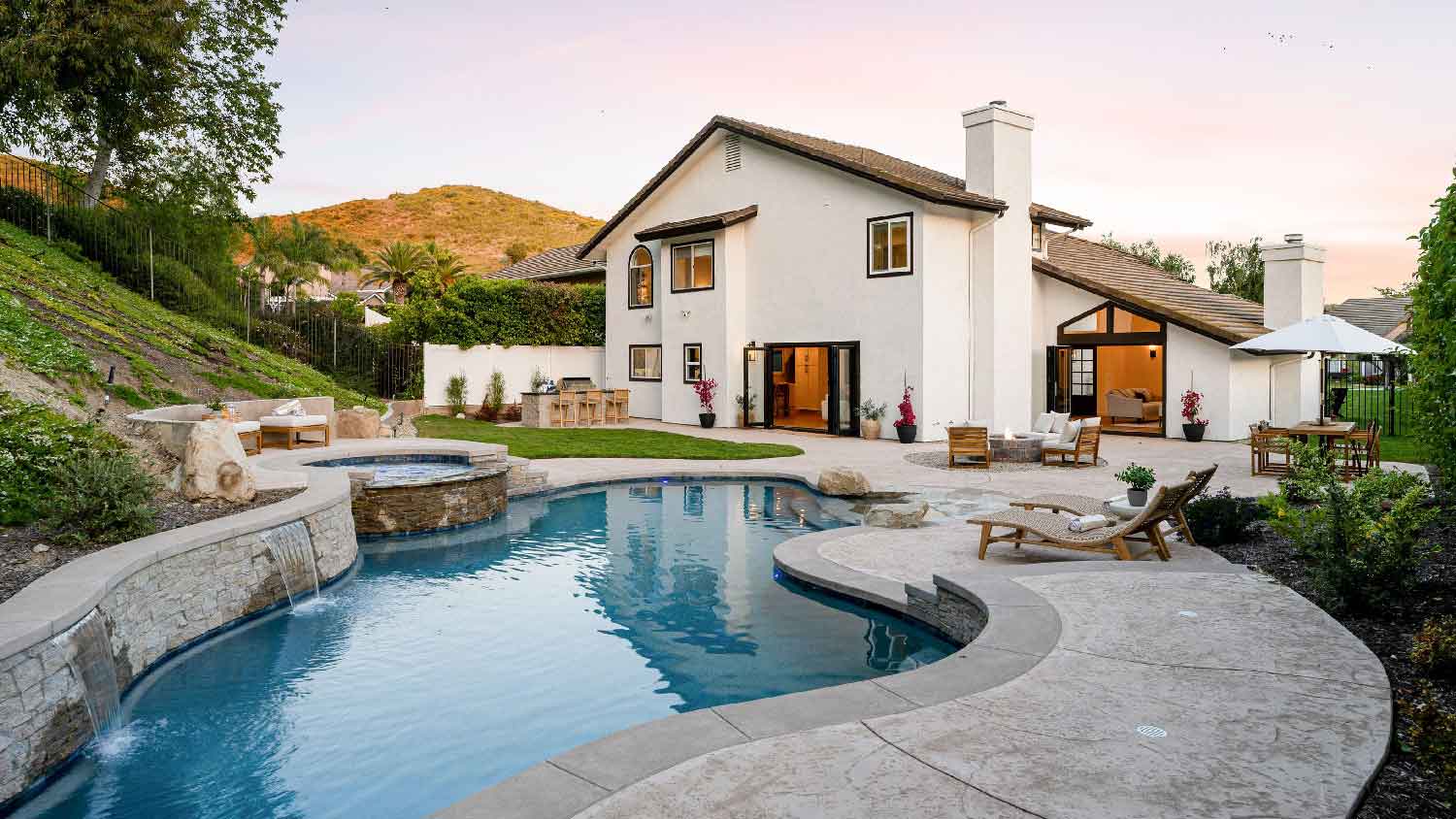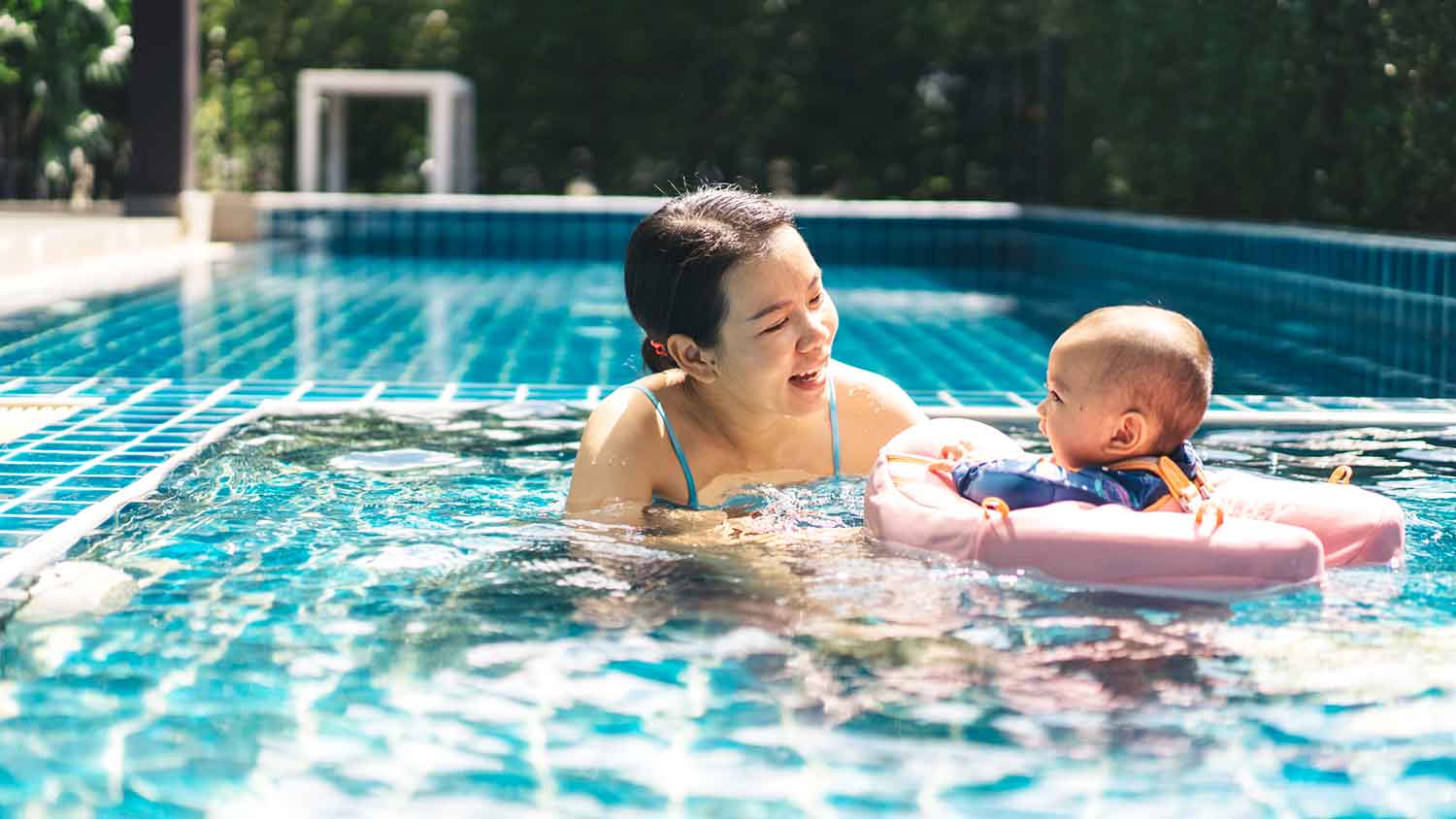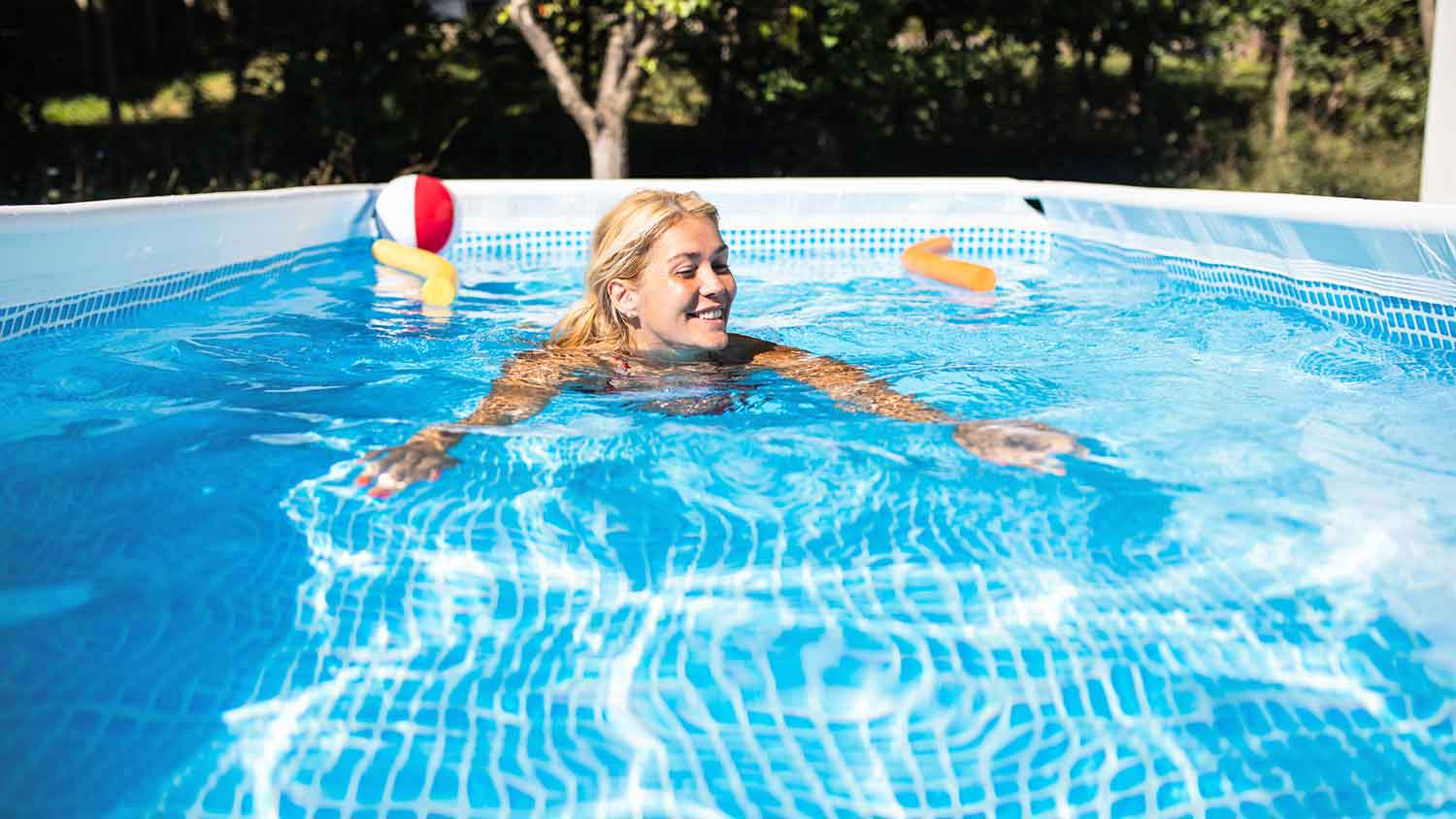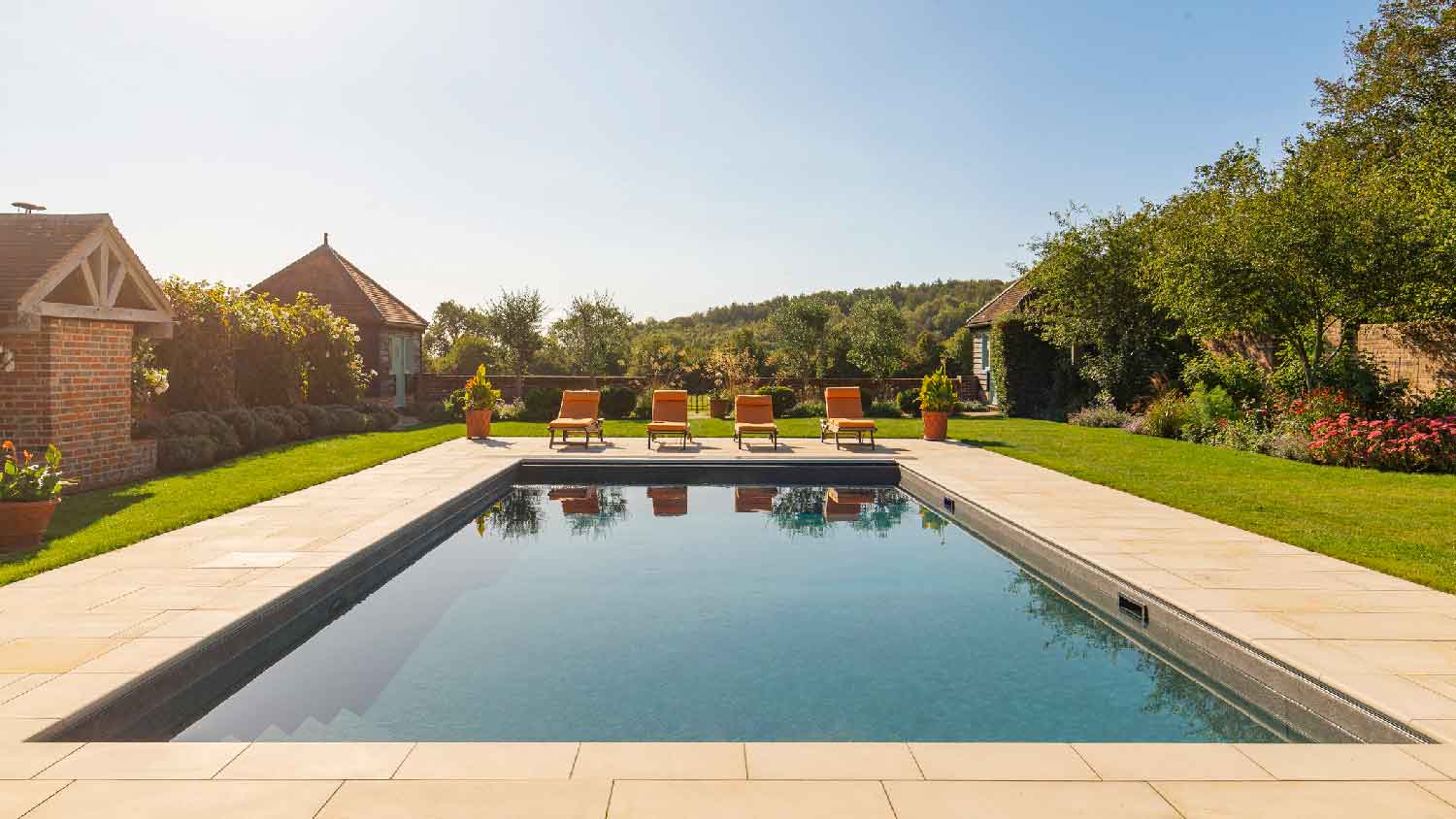Start Thinking About Pool Heaters Before Spring
To avoid a frigid shock when you jump in your pool, consider a pool heater before the spring


A pool heater circulates water through a heating tank.
The fall is the most popular time to get a pool heater.
However, spring may be ideal in several scenarios.
Consider size, efficiency, and cost when choosing a pool heater.
Few things are more relaxing than taking a dip in your private pool—until you realize mid-plunge that after a recent cold snap, the water isn’t exactly warm.
As the winter weather starts to release its grip, it may be the perfect time to start thinking about a pool heater, so your pool is ready to enjoy as soon as spring arrives. Here’s what you need to know about how to heat a pool with pool heaters, in what scenarios spring might be the best time to get one, and what to consider when choosing a pool heater.
What Does a Pool Heater Do?
A pool heater keeps the water in your pool at a comfortable temperature by circulating it through a heating tank, which warms the water and then sends it back into the pool. This allows you to control the temperature of your pool even during colder months.
This is similar to how a spa or jacuzzi works, but you wouldn't want to heat a pool that much; it would waste a tremendous amount of energy and take longer due to the larger volume of water. Instead, a pool heater keeps a consistent flow of warm water to keep things comfortable, without going overboard with the heat.
Pool heaters typically use natural gas, propane, or electricity, but you can get a solar pool heater as well.
Best Time to Buy a Pool Heater

September is typically the most popular time to get a heat pump because that’s when the weather begins to cool. But there are certain scenarios where the spring is the ideal time to have a heat pump installed.
Pool Not Used During Winter
If you're the kind of homeowner who drains the pool during winter and doesn't fill it back up until the spring, you might not feel the need to get a heat pump during the peak fall season because you won't be using it for several months anyway.
Colder Climate
If you live in a colder climate, it makes the most sense to get a pool heater in the spring when you're ready to start using the pool again. While you may not need it during the height of summer, spring can be pretty cool in northern climates. In that case, it’s often best to get a pool heater if you want to start using the pool in April or May.
Easier to Find an Installer
There's also the fact that since everyone is buying a pool heater in the fall, you might find it easier to find an installer in the spring (although you're unlikely to get a discount on the unit itself).
Waited Too Long
Sometimes, a homeowner might wait too long to think of getting a heat pump, and at that point, it's solidly winter. It's a bit more challenging to install a pool heater during the winter months, although it’s possible to install. It also may be more difficult to hire an installer, as many heat pump professionals specialize in all sorts of heating systems, and they're busy handling that kind of work in the winter.
It's Ready for the Summer
Did you know many heat pumps also cool your pool? If it gets scorchingly hot in the summer, the spring may be the best time to install a heat pump, so your pool doesn't get too hot. Ask a professional what kind of model is best for this.
What to Look For in a Pool Heater
When considering which type of pool heater to buy, consider three things in particular: size, efficiency, and cost.
Size
The size of the pool heater will be your biggest determining factor, as pools come in vastly different sizes. The larger the pool, the more powerful the pool heater you'll need. A standard-sized pool generally requires a heat pump pool heater with a Btu output and horsepower (hp) of between 3.5 to 6 hp and 75,000 to 125,000 Btu.
Efficiency
The pool heater's coefficient of performance (COP) number will tell you how efficient it is, which greatly impacts your energy bill. A typical COP range is 3.0 to 7.0. The higher the COP, the more units of heat you get out of the heat pump for each unit of electricity.
Cost
Generally, the cost to install a pool heater is between $1,700 and $4,000. Factors that influence the cost include location and climate, the size of the pool, and what existing hookups you have. Contact a pool heater installer near you for a quote.





- How Does a Pool Heater Work?
- 9 Tips to Heat a Pool Efficiently (With or Without a Heater)
- The Best Time to Buy a Pool to Save Money and Time
- Types of Pool Heaters: Pros, Cons, Costs, and More
- 10 Things to Consider When Building a Pool
- What Size Pool Heater Do I Need for My Pool?
- Pros and Cons of Filling In a Pool With Dirt
- How to Design Your Dream Pool
- Who to Call to Fix a Pool Heater
- Pros and Cons of Owning a Pool










